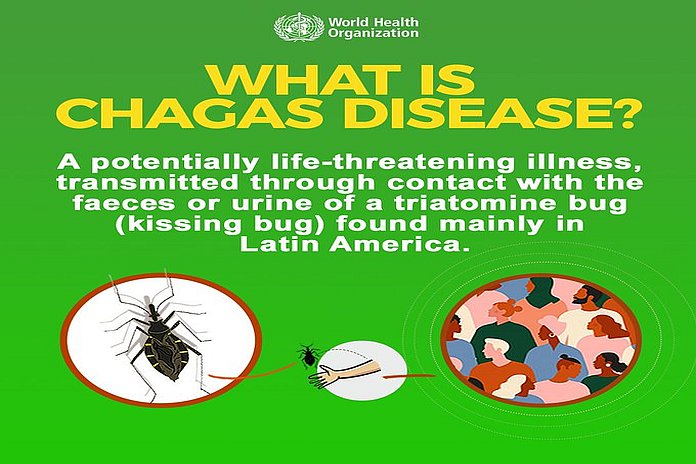GENEVA, Switzerland — Cost-effective interventions such as blood screening, as well as improved hygiene and food safety, could save millions from what the World Health Organization (WHO) has described as a “silent and silenced disease” that mainly affects poor people.
For the first time, the international community on Tuesday celebrating World Chagas Disease Day to raise awareness of this neglected and entirely treatable tropical disease.
“The only way to keep people safe from Chagas disease is to stop its transmission. It’s known as a silent disease because it can live quietly in the body until the late stages when it may cause fatal cardiac damage. But early diagnosis and treatment can make a difference”, said WHO chief, Tedros Adhanom Ghebreyesus, in a video message for the day.
Chagas disease is a potentially life-threatening illness caused by a parasite called Trypanosoma cruzi. It is named after Dr Carlos Ribeiro Justiniano Chagas, the Brazilian doctor who diagnosed the first case on April 14, 1909.
Transmission can happen in several ways, though mainly through an insect known as the triatomine bug, popularly known as the “kissing bug”, which can carry the parasite.
The bugs typically live in the walls of a home or in other structures such as chicken coops, animal pens, and warehouses. They normally are active at night, when they feed on the blood of humans or animals by biting exposed skin, such as the face, which is how they got their nickname.
Infection occurs when people come into contact with the bug’s faeces or urine: for example, through the insect’s bite or other open wounds, or from eating contaminated food. Other routes include blood transfusion, mother-to-child transmission and from organ transplants.
Chagas disease was endemic in Latin American countries but is now a global health problem, affecting as many as seven million people.
In recent decades, cases have increasingly been detected in the United States and Canada, in many European countries, and in nations in Africa, the Eastern Mediterranean and the Western Pacific.
WHO said it is also a “silenced” disease because it mainly affects poor people who have no political voice or access to healthcare. Chagas disease can be treated with medicines that kill the parasite, which are “100 percent effective” if given soon after infection.
Depending on the geographical location, WHO also recommends prevention and control measures such as spraying homes and surrounding areas with residual insecticides, using bednets, promoting good hygiene practices in food preparation and storage, and screening blood donors,
For the UN agency, World Chagas Disease Day gives voice to those who suffer, as raising awareness is essential to improve rates of early treatment and cure.
“Chagas disease has been associated for a long time with mainly poor, rural and marginalized populations and is characterized by poverty and exclusion”, said Dr Mwelecele Ntuli Malecela, director of the agency’s department of control of neglected tropical diseases.
“It is time we end this neglect and the social stigma associated with infection that stands as a major barrier to effective screening, diagnosis, treatment, and control.”





